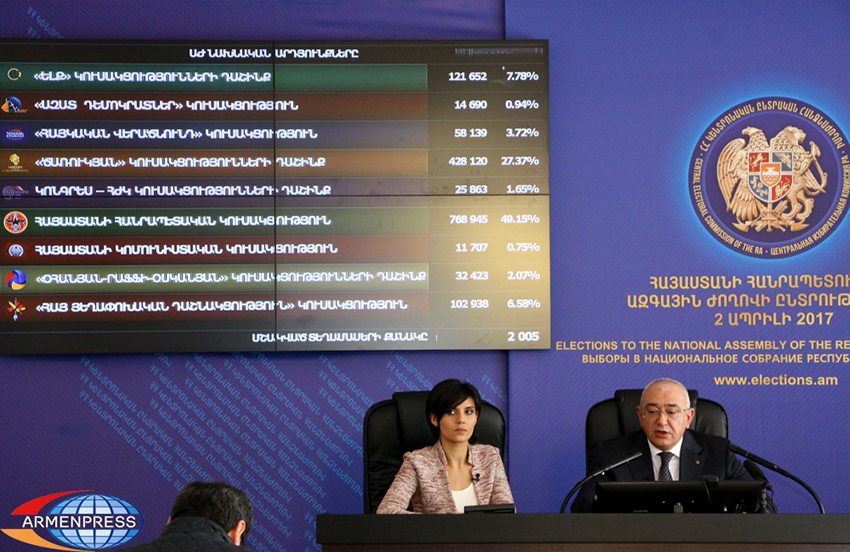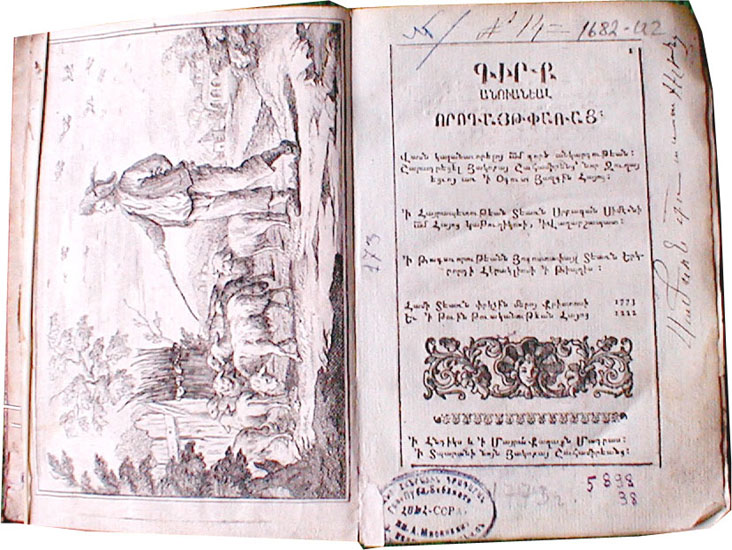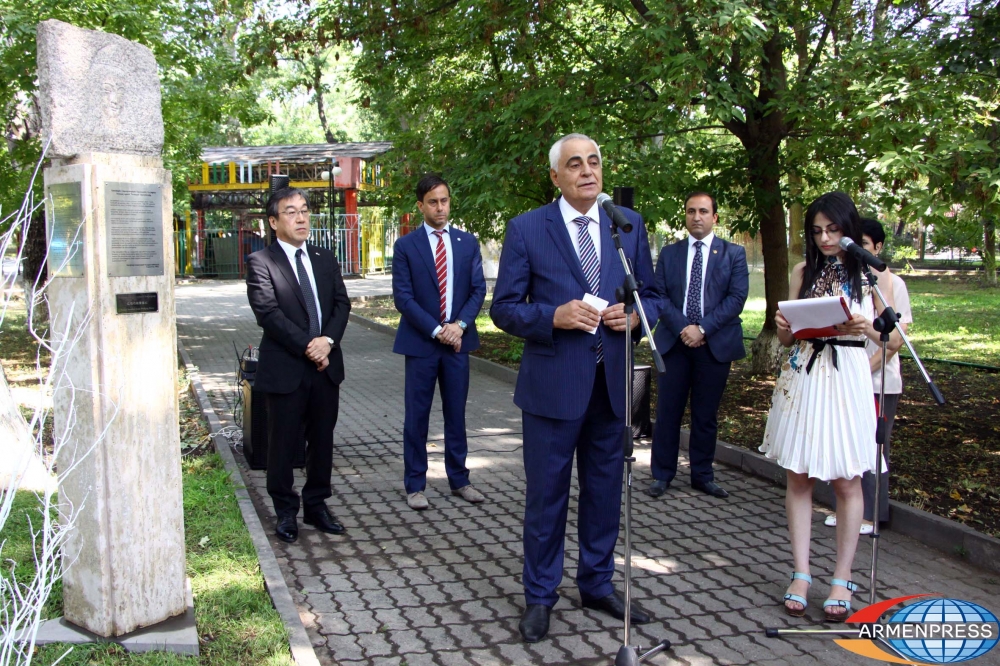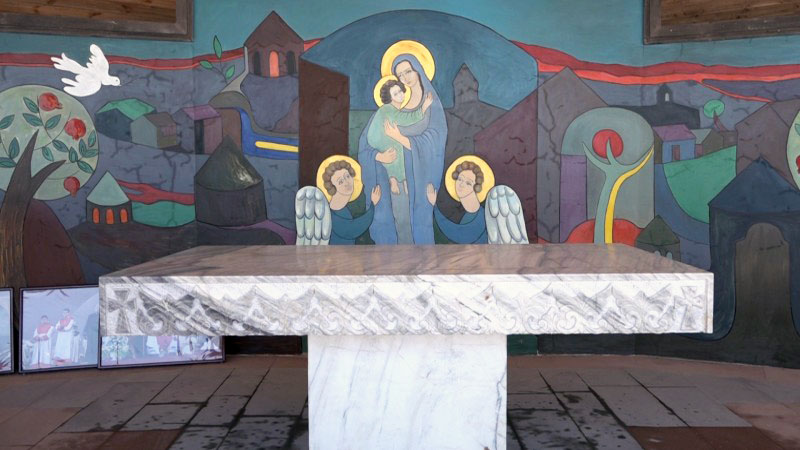YEREVAN — The ruling Republican Party of Armenia (HHK) was on course to score a landslide victory in Sunday’s parliamentary elections amid opposition allegations of vote buying and other irregularities.
The government controled Central Election Commission said on April 3 said that with ballots counted from almost all precincts in the April 2 vote, the Republican Party had won 49.15 percent and the center-right Tsarukian alliance, led by Gagik Tsarukian, had 27.37 percent, followed by the opposition Yelk alliance (7.5 percent) and the Armenian Revolutionary Federation-Dashnaktsutyun (6.7 percent), the HHK’s junior coalition partner.
The five other election contenders looked set to fail to pass the 5 percent and 7 percent vote thresholds for being represented in the National Assembly set for political parties and alliances respectively. They included former President Levon Ter-Petrosian’s opposition Congress-HZhK alliance (1.6 percent) and the ORO alliance led by former Defense Minister Seyran Ohanian (2.1 percent).
Turnout was 60.86 percent, the election commission said.
Opposition forces as well as independent election observers reported various irregularities, notably vote buying, throughout Sunday’s voting. The Citizen Observer, a coalition of Armenian civic groups that deployed over 3,000 monitors across the country, alleged numerous instances of electoral violation and manipulation. Those included vote buying, voter intimidation, and the presence of unauthorized persons inside polling stations.
Monitors from the Organization for Security and Cooperation in Europe (OSCE) and other groups said the vote was “tainted by credible information about vote-buying” and pressure on voters, according to a statement posted on the OSCE website.
It said the interference “contributed to an overall lack of public confidence and trust in the elections.”
Under constitutional changes approved in a 2016 referendum, the Armenian prime minister’s office will become more powerful while the presidency is to become a largely ceremonial post elected by parliament.
Those changes are due to take place when Sarkisian’s second and final term ends in 2018. Critics charge that they were designed to allow him to stay in power beyond the presidency’s two-term limit.










